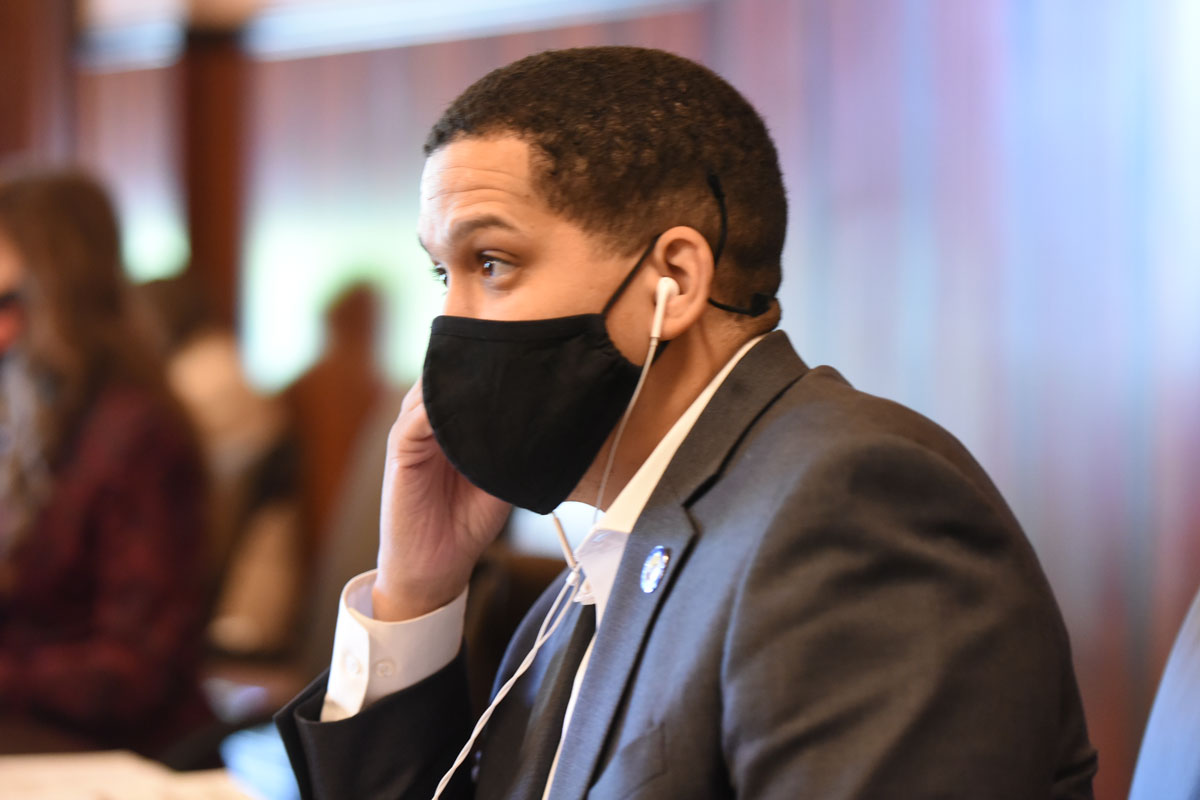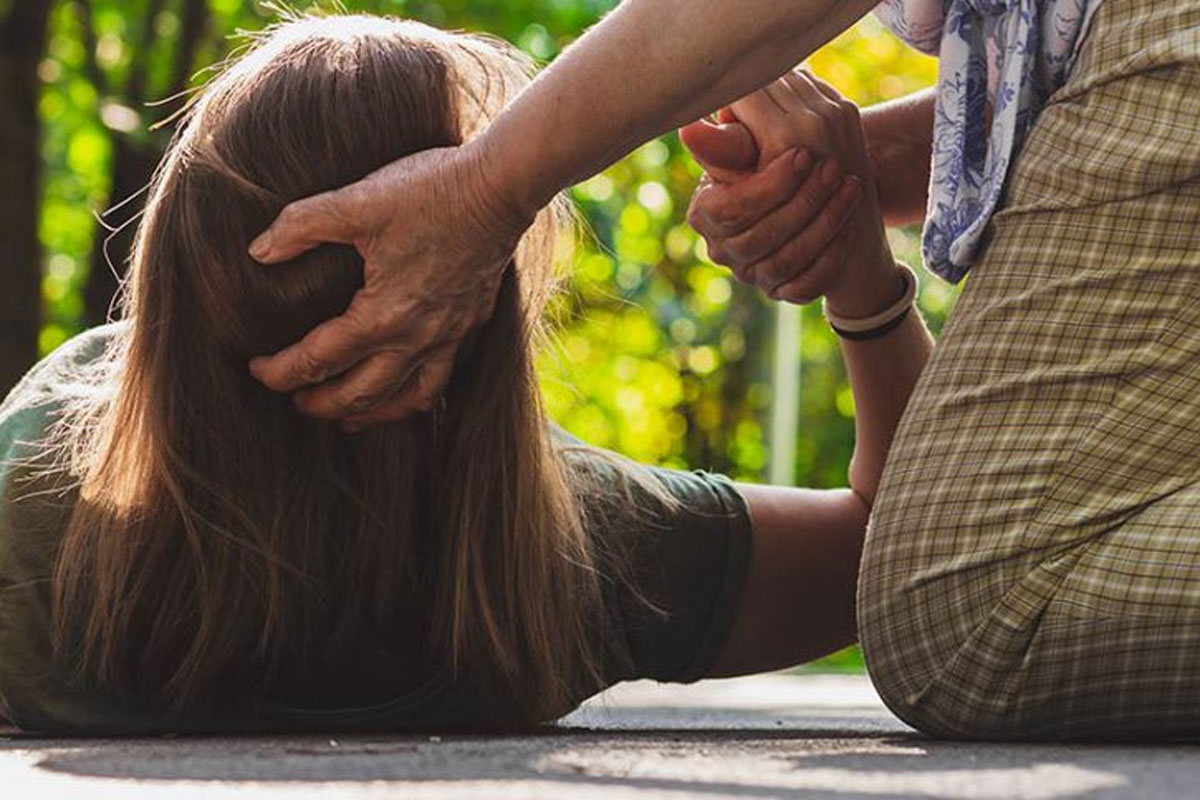- Details
- Category: Senator Ram Villivalam News
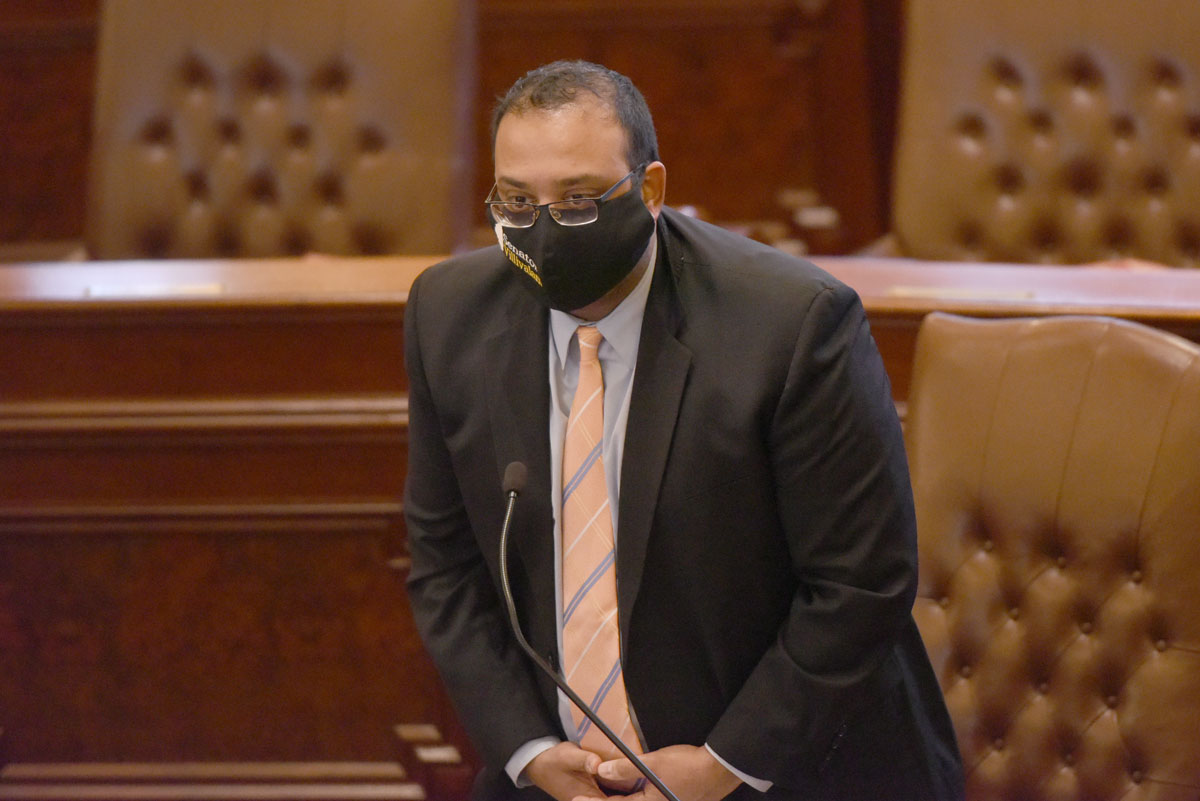 SPRINGFIELD – State Senator Ram Villivalam (D-Chicago) released the following statement on the passage of Senate Bill 18, the Energy Transition Act:
SPRINGFIELD – State Senator Ram Villivalam (D-Chicago) released the following statement on the passage of Senate Bill 18, the Energy Transition Act:
“The Energy Transition Act is the strongest clean jobs plan in the nation, and I am proud to have voted in support of this legislation.
“This comprehensive package expands our renewable energy portfolio to make Illinois a leader in the fight against climate change. It sets bold decarbonization goals that prioritize the health of all Illinois residents, including those most affected by environmental injustice, and creates grant programs so working people in the energy sector experience a just transition to a good-paying job in clean energy.
Read more: Villivalam: Illinois leads fight against climate change with Energy Transition Act
- Details
- Category: Senator Laura Fine News
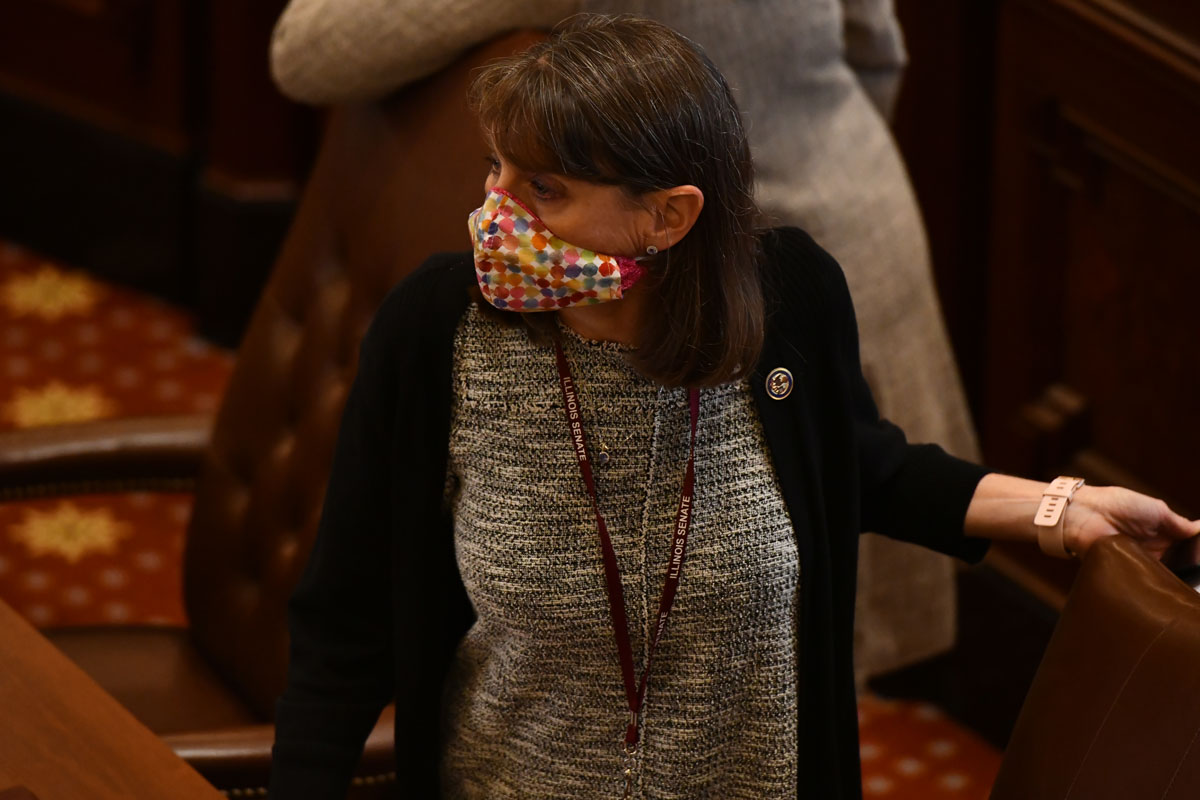 SPRINGFIELD – During her time in public service, State Senator Laura Fine (D-Glenview) has worked tirelessly as an environmental advocate, pushing for bold action against climate change. After casting her vote in support of Senate Bill 18, a comprehensive energy policy overhaul that puts Illinois on the path to 100% clean energy, Senator Fine released the following statement:
SPRINGFIELD – During her time in public service, State Senator Laura Fine (D-Glenview) has worked tirelessly as an environmental advocate, pushing for bold action against climate change. After casting her vote in support of Senate Bill 18, a comprehensive energy policy overhaul that puts Illinois on the path to 100% clean energy, Senator Fine released the following statement:
“As a staunch advocate for environmental policy that protects Illinoisans’ lives and livelihoods, I am proud to support legislation that sets Illinois on a path to a cleaner, carbon-free future by transitioning to clean electricity generation by 2050, protecting our planet and our children for decades to come.
Read more: Senator Fine supports monumental renewable energy investment
- Details
- Category: Senator Bill Cunningham News
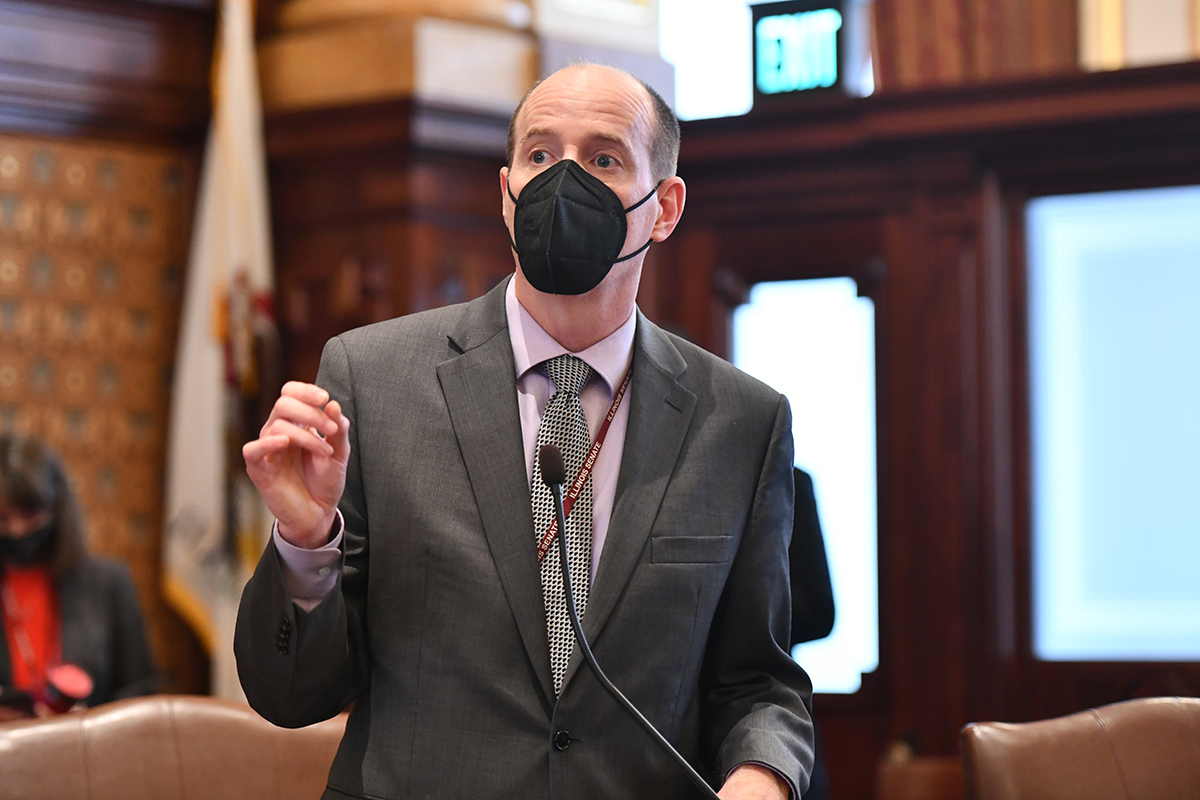 SPRINGFIELD – State Senator Bill Cunningham, who has been deeply involved in negotiations on a piece of legislation meant to spark Illinois’ renewable energy sector and preserve and create tens of thousands of jobs, praised the legislation’s Senate passage.
SPRINGFIELD – State Senator Bill Cunningham, who has been deeply involved in negotiations on a piece of legislation meant to spark Illinois’ renewable energy sector and preserve and create tens of thousands of jobs, praised the legislation’s Senate passage.
“This plan would make Illinois a national leader in fighting climate change,” said Cunningham, a Democrat who represents portions of Chicago and the southwest suburbs. “It also will help transition our energy workforce from fossil fuels to renewables earlier than any other state, giving those workers a distinct advantage in training and experience.”
Read more: Cunningham: Energy legislation creates thousands of jobs, fights climate change
- Details
- Category: Senator Sara Feigenholtz News
 SPRINGFIELD – Adults with intellectual and developmental disabilities will have a less restrictive alternative to guardianship to support their daily living, thanks to a measure sponsored by State Senator Sara Feigenholtz (D-Chicago) that was signed into law Friday.
SPRINGFIELD – Adults with intellectual and developmental disabilities will have a less restrictive alternative to guardianship to support their daily living, thanks to a measure sponsored by State Senator Sara Feigenholtz (D-Chicago) that was signed into law Friday.
“Adults with disabilities deserve the opportunity to make decisions in how they live their daily lives when possible,” Feigenholtz said. “This law helps many people with disabilities build confidence and become better self-advocates.”
Read more: Feigenholtz law ensures more rights to adults with disabilities
- Details
- Category: Senator Jacqueline Y. Collins News
 CHICAGO – Felony prostitution charges, which have not existed in Illinois since 2013, will be expunged under a new law signed today, the result of legislation by State Senator Jacqueline Collins (D-Chicago).
CHICAGO – Felony prostitution charges, which have not existed in Illinois since 2013, will be expunged under a new law signed today, the result of legislation by State Senator Jacqueline Collins (D-Chicago).
“The fact we have stopped charging prostitution as a felony means nothing to those whose records continue to be hurt by these charges,” said Collins (D-Chicago). “I want to thank Gov. Pritzker for signing this legislation and moving us beyond a dynamic that only serves to harm sex workers and perpetuate a dangerous, exploitative environment for them.”
Read more: Collins’ plan to expunge felony prostitution convictions signed into law
- Details
- Category: Senator Cristina Pacione-Zayas News
 CHICAGO – The Northwest Home Equity Program will have the ability to provide low- or no-interest home assistance loans to homeowners struggling to make their property tax payments under a new law signed today, the result of legislation by State Senator Cristina Pacione-Zayas (D-Chicago).
CHICAGO – The Northwest Home Equity Program will have the ability to provide low- or no-interest home assistance loans to homeowners struggling to make their property tax payments under a new law signed today, the result of legislation by State Senator Cristina Pacione-Zayas (D-Chicago).
“We need to use every tool at our disposal to help homeowners who are at risk of default, especially in light of a historically difficult year that has affected everyone’s finances,” Pacione-Zayas said. “With this legislation, homeowners on the Northwest side will get the additional assistance they need to help pay their property taxes.”
- Details
- Category: Senator Dave Koehler News
 SPRINGFIELD – Legislation sponsored by State Senator Dave Koehler (D-Peoria) was signed into law Friday expanding the venues where home-cooked food operations may sell their products.
SPRINGFIELD – Legislation sponsored by State Senator Dave Koehler (D-Peoria) was signed into law Friday expanding the venues where home-cooked food operations may sell their products.
“Especially in light of hardships faced across the state due to the pandemic, we need to be expanding opportunities for Illinoisans to create extra income, not limiting them,” Koehler said. “If even one family is more able to make ends meet as a result of this legislation, it will have served its purpose.
Read more: At-home food operations will see expanded sales opportunities thanks to Koehler’s new law
- Details
- Category: Majority Report
Peters strengthens mental health crisis response
CHICAGO – Illinois will become the first state to provide people experiencing mental health crises with more appropriate responses thanks to a law sponsored by State Senator Robert Peters (D-Chicago).
“Our goal as public servants must be to provide treatment, not trauma,” Peters said. “Trained mental health officials responding to mental health emergencies is how we provide that treatment. The alternative is how we risk furthering trauma.”
Alex's law aims to decrease opioid overdose deaths
SPRINGFIELD – People seeking help for an individual experiencing an opioid overdose will no longer fear arrest under Alex’s Law, a new statute sponsored by State Senator Laura Ellman (D-Naperville) that was recently signed into law.
“Fear of criminal charges should never result in someone not receiving the medical assistance they need,” Ellman said. “Saving lives has to be our first priority.”
Morrison's attorney general-backed Preventing Youth Vaping Act signed into law
SPRINGFIELD – A steadfast supporter of keeping tobacco out of the hands of children, State Senator Julie Morrison (D-Lake Forest) is proud of a newly signed law creating the Preventing Youth Vaping Act.
“Vaping- and e-cigarette-related deaths and illnesses have become a nationwide outbreak that no user is immune to — no matter how young they are,” said Morrison. “We must continue to change the culture of smoking – especially for younger generations. The Preventing Youth Vaping Act is another step toward keeping these harmful products out of the hands of children.”

In case you missed it
MEMBERS IN THE NEWS
Senator Scott Bennett, Champaign: Gov. Pritzker signs legislation providing student borrowers with critical information on educational lending options | Riverbender.com
Senators Jacqueline Y. Collins, Chicago, and Napoleon Harris III, Harvey: Illinois State Police to install license plate-reading cameras on Chicago area expressways as violence persists | Chicago Tribune
Senator Celina Villanueva, Chicago: Gov. Pritzker signs package of legislation to advance equity in higher education | WIFR 23
We're hiring
The Office of the Senate President is seeking highly-motivated attorneys for the 2021-2022 legislative session. For more information about the legislative assistant legal counsel position, click here.
We are also seeking full-time legislative associate legal counsel. For more information, click here.
The Majority Report is now available in an audio version
Now you can get your weekly Senate Majority Report on the go. If you're pressed for time, listen in for this week's news highlights in podcast form here.
Copyright 2021 - Illinois Senate Democratic Caucus - All Rights Reserved
More Articles …
Page 413 of 769
